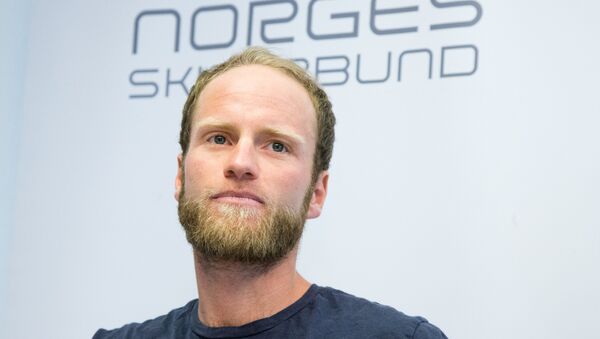Shortly afterwards, Norwegian TV-channel TV2 revealed that asthma medicine was being prescribed to skiers with a clean bill of health, including three-time Olympic medalist and seven-time World Championship winner Therese Johaug. Subsequently, Timo Seppälä, the head of Finland's sports medical center, called on international anti-doping watchdogs to take a closer look at the illicit use of asthma medicine in the Norwegian cross-country ski team.
Shortly thereafter, the Norwegian Ski Association appointed an external team of specialists to review the situation. The commission is headed by Norwegian lawyer Katharina Rise and consists of four members representing each of the Nordic nations, Norwegian newspaper Dagbladet reported.
"Ei tarvitse olla ruotsalainen nähdäkseen että Norjan urheilulla on maineen kanssa ongelmia" #doping #norway #sundby https://t.co/IiOJee5mIF
— Spekula Ski Team (@SpekulaST) 28 августа 2016 г.
The Norwegian ski squad, which has won medals in the majority of international events for years, has during the past decade come under fire over allegations of the illicit use of asthma medicine. In the 2000s, Marit Bjørgen, who harvested a total of six Olympic gold medals and 14 World Championship gold medals, was repeatedly accused of doping, notably by fellow skiers such as Poland's Justina Kowalczyk. Back in 2010, Kowalczyk said that Norway's Marit Bjørgen never would have won her three Olympic gold medals in Vancouver without her inhaler. According to Kowalczyk, Bjørgen had no asthma at all and was simply using an inhaler to boost her performance.
#crosscountry #worldcup #Ruka 10km #classic Norwegian duel on top! #Johaug #Bjorgen pic.twitter.com/nuEHtfbk0B
— Panagiotis Loutas (@panloutas) 30 ноября 2014 г.
Doping issues in the Norwegian team were also raised by Yelena Välbe, president of the Russian Cross-Country Ski Association, who recurrently questioned the dominance of Norwegians in both men's and women's races, since their team consisted "solely of asthmatics."
Asthma and other respiratory problems are in fact extremely common in elite athletes, who compete in unusual conditions such as extreme cold, dry air or chlorine-filled water. The prevalence of respiratory diseases has even spurred researchers at the UK Heart and Lung Institute to classify airway dysfunction as an "occupational disease."
Svårt att vinna när man har armar som en man… #dopad #bjorgen #twittski pic.twitter.com/y2uBw9Wc0P
— Hampus Sääski (@Hampuselias) 9 марта 2014 г.
However, public dismay over the Norwegian "asthma team" was shared by none other than Vladimir Putin, who during his annual Q&A session in December of 2015 said that athletes requiring drugs for medical reasons should consider joining a Paralympic team.
The Norwegian investigation may lead to the biggest exposure since World Championship 2001 in Lahti, Finland, when the whole Finnish team was disqualified for the use of performance-enhancing drugs.




